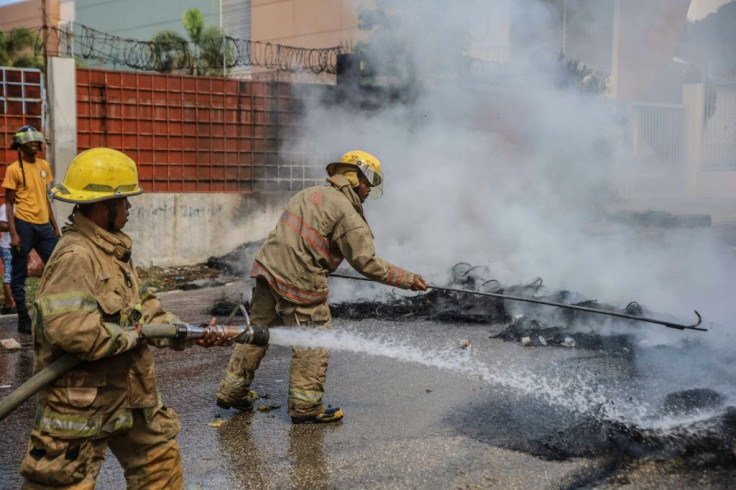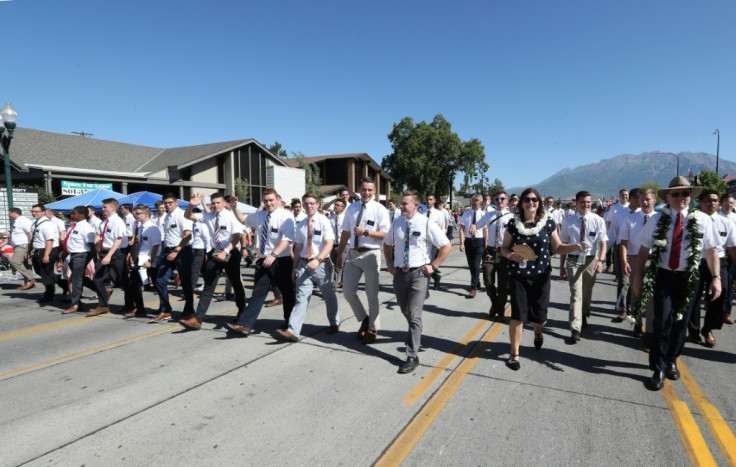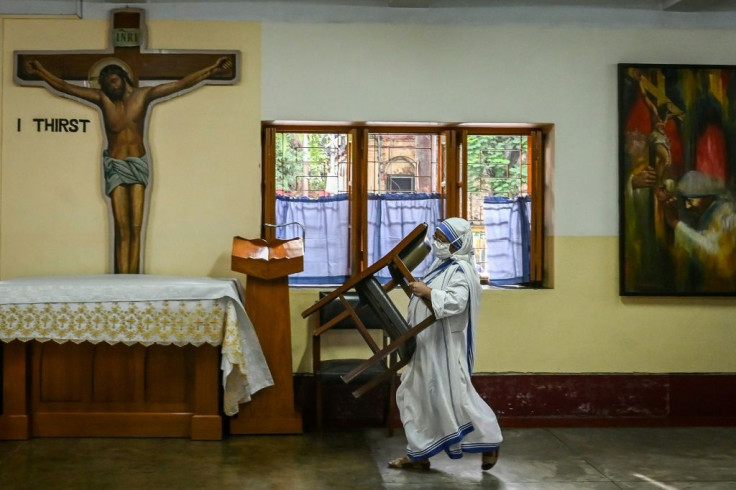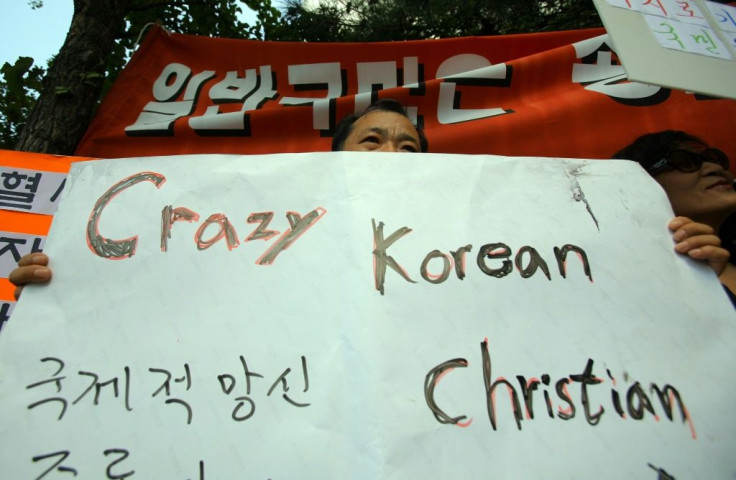Missionaries Seen As Asset, But Sometimes Headache, By US
The kidnapping of 17 missionaries in Haiti reinforces a predicament for Washington -- religious groups are often seen as an asset, going where many don't dare, but they can also find themselves in deep trouble.
Gangs that brazenly rule much of the Western Hemisphere's poorest nation over the weekend abducted 17 US and Canadian missionaries including children, the latest attack that appeared aimed at raising ransom money.
The United States had already issued its highest-level warning against travel to Haiti.

But religious groups, who believe they are doing God's work, are also frontline partners when the United States needs a presence in the world's most dangerous places.
Since the presidency of George W. Bush, the United States has channelled a growing amount of foreign aid to faith-based groups, a once controversial practice that has become largely accepted across administrations.
Religious charities have long roots in Haiti, where the abducted missionaries came from Christian Aid Ministries, an Ohio-based organization of Mennonites and Amish.
"If you want to help set up clinics in South Sudan or Haiti, you don't do it with the government, you do it with an NGO," said Melani McAlister, a professor of American studies at George Washington University.

"And American religious groups are absolutely a major, important part of that network of NGOs," she said.
Todd Johnson, co-director of the Center for the Study of Global Christianity at Gordon-Conwell Theological Seminary, said that long-term missionaries generally develop the language skills and cultural knowledge -- as well as proper paperwork -- to operate effectively.
"It's to the US government's advantage that they succeed," he said.

He said there should be no difference in the government's response if the abducted people are missionaries or, for example, businesspeople held for money.
The State Department says it treats missionaries no differently than it would other US citizens who need help overseas.

But missionaries have frequently triggered major diplomatic incidents.
Knox Thames, a former State Department official focused on international religious freedom, said that US diplomats were often unaware of missionaries, who have no obligation to share their beliefs or whereabouts.
"However, American embassies often view missionaries as a problem," he said.
"They might offend local sensibilities, run afoul of anti-proselytizing laws or find themselves kidnapped like in Haiti."
The Islamic world is especially sensitive about conversion attempts. In one high-profile case, 23 Christian missionaries from South Korea were abducted in 2007 by the Taliban in Afghanistan, freed only after Seoul agreed to withdraw troops from the US-led mission.
Among US citizens, Turkey's arrest during a nationwide crackdown of Andrew Brunson, a pastor who had been a resident for years and had become a cause celebre in evangelical Christian circles, led former president Donald Trump in 2018 to raise tariffs to secure his release.
Russia has faced US criticism for a ban on most missionaries. Minefields exist even with friendly nations such as India, which allows foreign missionaries to enter only if they do not proselytize.
Missionaries can also find themselves far from help as in the case of John Chau, the American who was killed in 2018 by an isolated tribal group as he sought to bring Christianity to a remote Indian island in the Andaman Sea.
The kidnapped Mennonites were not believed to be seeking converts in Haiti, a country that is already largely Christian, albeit Catholic.
But proselytization is an integral part of faith to many American Christians, notably members of the Church of Jesus Christ and Latter-Day Saints, which encourages young men to work overseas as missionaries.
According to the church, some 54,000 missionaries served around the world last year, with fresh-faced, clean-cut young men on street corners sometimes becoming foreigners' first encounters with Americans.
The US government, while partnering with faith groups, says it provides funding only for aid and not for proselytizing.
Johnson, the scholar of missionaries, said that most Christians were fine with that.
"Ninety percent -- maybe more -- of Christian aid and development is very sensitive to proselytizing, because it just doesn't work well," he said.
"From a Christian point of view, it's part of Christian witness to simply help people," he said. "If people are interested in more than that, that's good, but if they just help that's fine as well."
© Copyright AFP 2024. All rights reserved.





















